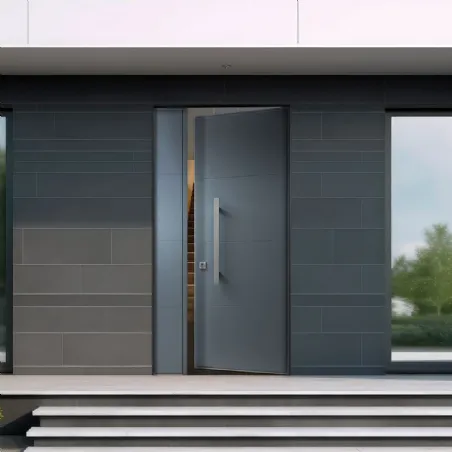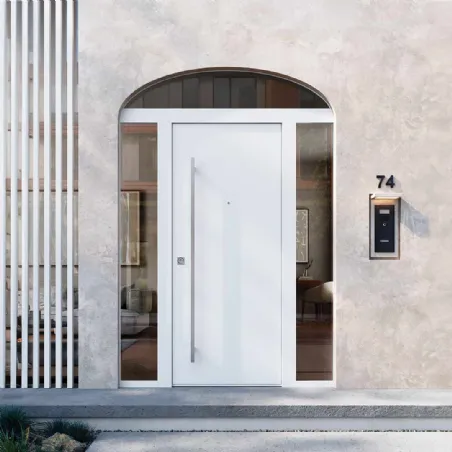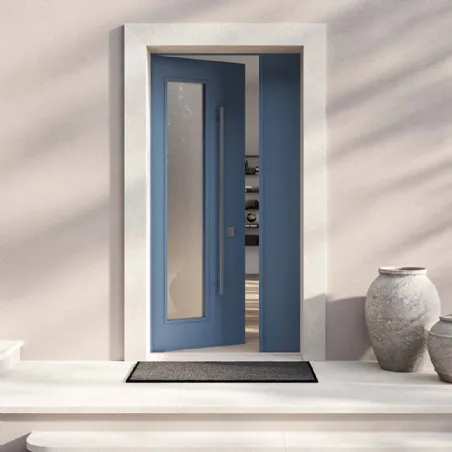Exterior Armored Doors: Features and Advantages?
Characteristics of External Armored Doors
External armored doors are designed to offer the highest level of security and protection against burglary attempts. Here are some of the main features:
- Robust Structure: Made with resistant materials such as steel and reinforced metal alloys, these doors ensure a solid and impenetrable structure.
- High Security Locks: Equipped with multipoint locks, anti-bumping, anti-picking, and anti-drilling cylinders for superior security.
- Insulated Panels: Often equipped with insulated panels that improve the energy efficiency of the home, reducing thermal dispersion and external noises.
- Weather Resistance: Treated with paints and materials resistant to weather agents such as rain, wind, and UV rays, maintaining their integrity and beauty over time.
- Customizable Design: Available in various designs and finishes to adapt to the aesthetics of the house, without compromising security.
Advantages of External Armored Doors
Benefits of External Armored Doors:
- Optimal Security: The main function of external armored doors is to protect the house from unwanted intrusions, thanks to their robustness and advanced locking systems.
- Thermal and Acoustic Insulation: They help maintain a constant temperature inside the house and reduce noise from outside.
- Increase in Property Value: A high-quality external armored door can increase the overall value of the property, representing a long-term investment.
- Aesthetics and Customization: The possibility to choose from different finishes and colors allows for a door that integrates perfectly with the architectural style of the house.
Differences between external and internal armored doors
External and internal armored doors serve different purposes and have different characteristics. Here are the main differences:
- Usage: External armored doors are designed to protect the entire home from the outside, while internal doors are used to separate and protect specific areas within the home, such as safe rooms or offices.
- Weather Resistance: External doors need to be weather-resistant, while internal doors do not require this type of protection.
- Security Level: External doors usually offer a higher level of security compared to internal doors, as they have to face more significant external threats.
- Insulation: External armored doors often include thermal and acoustic insulation features, while internal doors may not have these properties.
Request information



